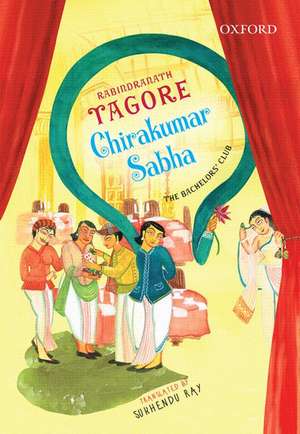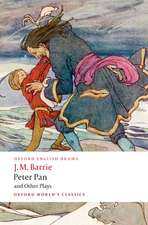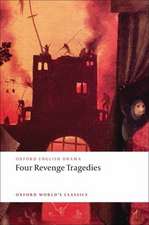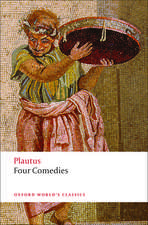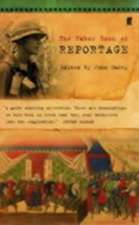Chirakumar Sabha: The Bachelor's Club: A Comedy in Five Acts
Autor Rabindranath Tagore, Sukhendu Rayen Limba Engleză Paperback – 12 iun 2014
Preț: 161.92 lei
Nou
Puncte Express: 243
Preț estimativ în valută:
30.99€ • 32.15$ • 25.90£
30.99€ • 32.15$ • 25.90£
Carte disponibilă
Livrare economică 24 februarie-10 martie
Preluare comenzi: 021 569.72.76
Specificații
ISBN-13: 9780198099444
ISBN-10: 0198099444
Pagini: 212
Dimensiuni: 125 x 183 x 17 mm
Greutate: 0.19 kg
Editura: OUP INDIA
Colecția OUP India
Locul publicării:Delhi, India
ISBN-10: 0198099444
Pagini: 212
Dimensiuni: 125 x 183 x 17 mm
Greutate: 0.19 kg
Editura: OUP INDIA
Colecția OUP India
Locul publicării:Delhi, India
Recenzii
Emerging at a time when women were beginning to play a greater role in urban social life, it raise some important questions about the relationship between men and women in the public sphere
Notă biografică
Rabindranath Tagore (1861-1941), acclaimed poet, playwright, short story writer, and novelist, wrote successfully in almost all literary genres including musical drama, dance drama, essay, travel diary, and autobiography. He won the Nobel Prize in Literature in 1913. His composition, Jana Gana Mana, is recognized as the National Anthem of India. Sukhendu Ray, well-known translator, is the translator of Tales from Thakurmar Jhuli: Twelve Stories from Bengal (OUP, 2012) and Three Novellas: Nashtanir, Dui Bon, Malancha (OUP, 2010).
